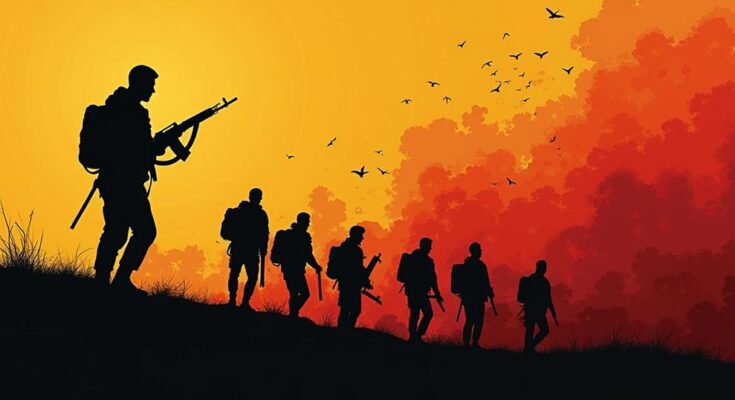Hezbollah, following the assassination of its leader, Hassan Nasrallah, remains defiant and confident about its capabilities despite significant losses inflicted by Israeli airstrikes. The militia has reportedly restored most of its communication networks and retains critical missile resources, vowing retaliation without constraints. Hezbollah leaders express readiness to engage fully in response to Israeli provocations, potentially foreshadowing an escalation in conflict.
Despite recent setbacks, including the assassination of its leader Hassan Nasrallah, Hezbollah remains resolute and confident. Escalating Israeli military actions have reportedly taken out numerous high-ranking Hezbollah figures and destroyed significant missile stockpiles. Nonetheless, Hezbollah leaders proclaim that their communications have largely been restored and they possess the key elements of their missile arsenal. In interviews, they emphasize a readiness to engage with unprecedented intensity. A Hezbollah missile specialist, known by the pseudonym Hassan, states, “All red lines are gone. We are going to fight this war without any rules,” highlighting the group’s intention to retaliate without constraints following the loss of their leader. Analysts note that while Israeli airstrikes have inflicted substantial damage, the effectiveness and operational capability of Hezbollah remain in question. The dynamic within the militia has shifted dramatically in response to the pressures they face. Formerly calculated in their responses to Israeli provocations, Hezbollah now perceives the situation as one that requires a more aggressive approach. High-ranking Hezbollah figures, such as Naim Qassem, have called for confidence in upcoming operations, asserting that they still retain significant military capabilities despite Israeli assertions to the contrary. The changing landscape signals a potential shift towards broader conflict if these tensions escalate further, transforming Hezbollah’s operational strategy to one that prepares for more decisive military engagements in the future.
The Lebanese militia Hezbollah, backed by Iran, has long been viewed as a significant player in regional conflicts. Established during Israel’s invasion of Lebanon in 1982 and led by Hassan Nasrallah for over thirty years, the group has been involved in numerous confrontations with Israeli forces. Its recent losses, particularly the death of Nasrallah, have raised concerns about its future operational capabilities and the threat it poses to Israel. Israeli military operations have aimed at crippling Hezbollah’s leadership and missile capabilities, creating a precarious situation for both sides. Analysts suggest that Hezbollah’s ability to respond effectively has been compromised by heightened Israeli intelligence operations and airstrikes, leading to questions about their military readiness and response strategies moving forward.
In conclusion, Hezbollah remains undeterred in the face of Israeli aggression, pledging to retaliate despite substantial losses to its leadership and infrastructure. The assassination of Hassan Nasrallah marks a pivotal moment in their operational strategy, fostering sentiments of heightened defiance among their fighters. As Hezbollah leaders communicate their resilience and readiness to engage, it appears they are not just committed to maintaining their military structure but are prepared to escalate conflict if provoked further. This evolving narrative of defiance poses implications for regional stability, as the group signals a potential shift towards an all-out confrontation with Israel in response to perceived provocations.
Original Source: www.csmonitor.com




